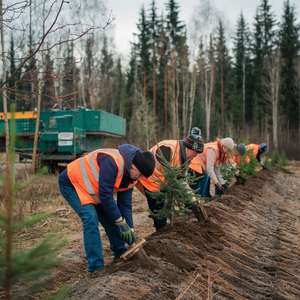
A Sustainable Approach to Exploring the World
In an era of climate change awareness, many travelers are embracing "green travel"—a more sustainable and eco-conscious approach to exploring the world. Green travel aims to minimize the environmental impact of tourism while promoting local cultures, ecosystems, and economies. Here are key principles of green travel and tips to make your next adventure more sustainable.
1. Choose Eco-Friendly Transportation
Transportation is one of the biggest contributors to a traveler's carbon footprint, especially air travel. Whenever possible, opt for greener alternatives like:
- Trains: Trains produce far fewer emissions than planes, and many European countries and Japan have extensive, efficient rail networks that make it easy to travel.
- Electric or Hybrid Vehicles: If you’re renting a car, look for an electric or hybrid option. These vehicles produce significantly fewer emissions compared to traditional gasoline-powered cars.
- Cycling and Walking: Explore destinations by bike or on foot. It not only reduces your carbon footprint but also offers a deeper, more immersive travel experience.
2. Stay in Sustainable Accommodations
Many hotels and resorts are making efforts to go green, but some are better than others. Look for accommodations that:
- Have energy-efficient systems, like solar panels or water-saving devices.
- Use locally sourced materials and promote local culture.
- Support eco-friendly certifications such as LEED (Leadership in Energy and Environmental Design), Green Key, or EarthCheck.
You can also opt for homestays or eco-lodges, which often support local communities and conserve the environment.
3. Support Local and Responsible Tourism
Sustainable travel isn’t just about reducing emissions; it’s also about supporting the local economy and culture. Try these strategies:
- Buy from local artisans instead of imported goods, ensuring that your money goes directly to the local economy.
- Eat at locally owned restaurants that serve organic, locally sourced food. This reduces the carbon footprint associated with food transport and helps sustain local agriculture.
- Participate in eco-tourism activities, such as wildlife safaris or conservation projects, that are run by local organizations committed to environmental preservation.
4. Pack Light and Eco-Friendly
The weight of your luggage has a direct impact on the amount of fuel a plane or car consumes. Packing lighter reduces emissions, and it also allows you to be more mobile and flexible during your trip. Additionally, consider:
- Using reusable travel bottles for toiletries.
- Bringing a water bottle with a filter to reduce plastic waste.
- Packing eco-friendly products, like bamboo toothbrushes and biodegradable soaps.
5. Offset Your Carbon Emissions
Even with the best intentions, some environmental impact is inevitable when traveling, especially with air travel. You can mitigate this by purchasing carbon offsets, which contribute to projects that reduce or capture carbon emissions, such as reforestation or renewable energy projects.
6. Be Respectful of Local Wildlife and Ecosystems
One of the most significant impacts of tourism is the disruption of local ecosystems and wildlife. Follow these tips to minimize your impact:
- Stick to marked trails when hiking to avoid damaging plant life and disturbing animal habitats.
- Avoid using single-use plastics, which often end up in oceans and harm marine life.
- Never purchase products made from endangered animals or plants.
7. Educate Yourself and Others
Travel is an excellent opportunity to learn about environmental and cultural issues. Take the time to understand the environmental challenges of the regions you visit and support local efforts aimed at conservation and sustainability. Share your experiences and educate others about the importance of green travel.
Conclusion
Green travel isn't just a trend—it's a necessary shift toward responsible tourism that can help protect our planet while still allowing us to enjoy its beauty. By choosing sustainable transport, staying in eco-friendly accommodations, supporting local economies, and being mindful of your environmental impact, you can ensure that future generations will be able to explore the world with the same sense of wonder.





